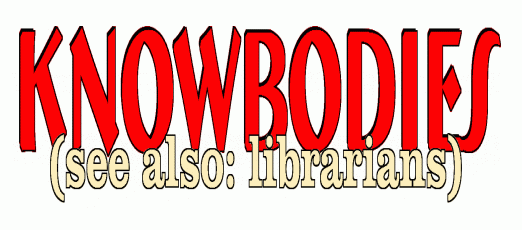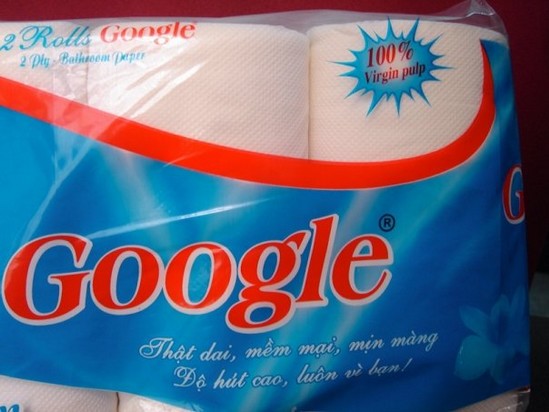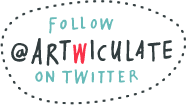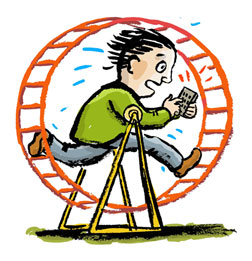Tuesday, December 29, 2009
The year in translation
In translations by country of origin, France tops the list, accounting for 32, or 9.2%, of 348 translations, while Spanish is the most translated language with 59 titles. 11 Norwegian titles in translation were released in the U.S. market in 2009 - the same number as lil'old Russia (lots of space and people, but evidently lacking in significant writers and literary tradition) and 1 more than measly China.
Three percent more than suggests that translations are a measure of a reading nations' insularity: The motivating force behind the website is the view that reading literature from other countries is vital to maintaining a vibrant book culture and to increasing the exchange of ideas among cultures. In this age of globalization, one of the best ways to preserve the uniqueness of cultures is through the translation and appreciation of international literary works. To remain among the world’s best educated readers, English speakers must have access to the world’s great literatures. It is a historical truism and will always remain the case that some of the best books ever written were written in a language other than English.
According to statistics compiled by the Norwegian publishers association 279 adult fiction titles were translated into Norwegian in 2008, along with 333 titles for children. In both categories, the number of translations exceeded the number of original Norwegian titles (275 and 233 respectively). Naturally, translations will be comparatively more numerous in nations of minor languages, but these are still striking figures: 279 titles for a population of under 5 million, as compared with 348 translations for a U.S. population of more than 300 million.
Free Technology for Teachers
Saturday, December 26, 2009
The worst books
Thursday, December 17, 2009
Preview new NYPL site
Access myLibrary for iPhone
Wednesday, December 16, 2009
Empowering the peanut gallery
Friday, December 11, 2009
An outstanding Christmas decoration
A truly outstanding Christmas decoration! And testimony by the anonymous prankster about the response to this lifesize yuletide ornament (read it at Traveling Librarian) inspires faith in the goodness of mankind!
Letters of Note
What an attractive and interesting blog Letters of Note is! Here's the "about" blurb:
Letters of Note is an attempt to gather and sort fascinating letters, postcards, telegrams, faxes, and memos. Scans/photos where possible. Fakes will be sneered at. Updated every weekday.
Translation
We’ve talked to some of the top translators into English working today; we’ve talked to publishers big and small; we’ve talked to agents, journalists, and foreign-language authors. We’ve asked them all for the best books that still aren’t in English. And have they responded. They’ve told us TRANSLATE THIS BOOK!, and now we pass that on to you.
Google real time search
Thursday, November 26, 2009
Distant Librarian and Edublog Awards
New Google product out of beta
Saturday, November 21, 2009
A translation mystery, solved I think
"In Moscow, he had for the first time felt, after his luxurious and coarse life in Petersburg..." etc.
A newer translation by Richard Pevear and Larissa Volokhinsky is similar.."In Moscow, after the luxurious and coarse life of Petersburg, he had" and so on.
And Google Translate renders it like this:
In Moscow, the first time he experienced after a luxurious and coarse Petersburg life, the beauty of intimacy with a charming and innocent girl who fell in love. (Not bad!!!)
But then we come to Louise and Aylmer Maud's translation:
"In Moscow, after this luxurious course of Petersburg life, he experienced" etc.
A Russian interepreter hearing the English homonyms "coarse" and "course" might conceivably confuse them, but here we're talking about a translation from Russian into English. Is there a Russian homograph (word with same spelling, different meaning, like "bark") or heteronym (word that has common spelling but different meaning and pronunciation, e.g invalid and invalid) that could account for this gaffe? My Russian speaking friends said no, and having no further ideas, I tucked it away in my big store of things to wonder about.
Then last week I stumbled upon Jeffrey Trachtenberg's article Translating Tolstoy in the Wall Street Journal, about the translators Richard Pevear and Larissa Volokhonsky. I decided to send Trachtenberg a note about this little conundrum, and he graciously responded by directing me to David Remnick's fascinating 2005 New Yorker article "The Translation Wars" which discusses more generally the challenges of translating Russian, the famous feud between Nabokov and Wilson, and some of the translators (including Pevear and Vohlokinsky) and their translations. One detail in particular, about Constance Garnett's production line methods, grabbed my attention: She hired a secretary, who read the Russian text to her aloud; Garnett would dictate back in English.
Eureka, this is precisely the kind of method that could twist "coarse" into "course." And although this was about Garnett and her secretary (who got the passage right), it is not implausible that the Maudes might have engaged in the same kind of mischief. I can think of no other explanation.
p.s. - in Russian, in case someone might have a better explanation, the passage looks like this:
В Москве в первый раз он испытал, после роскошной и грубой
петербургской жизни, прелесть сближения со светскою милою и невинною
девушкой, которая полюбила
Thursday, November 19, 2009
Non-librarians speak up for libraries; launch of ReadKiddoRead
Nov 6 Author James Patterson advocates for libraries at a national conference for school librarians. “It’s time for librarians to start making a lot more noise,” Patterson told the packed crowd. “School libraries are not a luxury, they are a necessity.”
Additionally, Patterson and a team of publishing consultants launch a new literacy website, ReadKiddoRead that beats library sites hands-down for content, discoverability and advocacy messaging.
Wednesday, November 18, 2009
Where stories come from
Tuesday, November 17, 2009
This week is Geography Awareness Week!
Monday, November 16, 2009
More on the smell of books
Material Degradomics: On the Smell of Old Books
Matija Strli*†, Jacob Thomas‡, Tanja Trafela§, Linda Csfalvayov†, Irena Kralj Cigi§, Jana Kolar and May Cassar†
Centre for Sustainable Heritage, The Bartlett School of Graduate Studies, University College London, Gower Street (Torrington Place site), London, United Kingdom WCIE 6BT, Tate, Millbank, London, United Kingdom SW1P 4RG, Faculty of Chemistry and Chemical Technology, University of Ljubljana, Akereva 5, Ljubljana, Slovenia SI-1000, and Morana RTD d.o.o., Oslica 1b, Ivanna Gorica, Slovenia SI-1295
Anal. Chem., 2009, 81 (20), pp 8617–8622
DOI: 10.1021/ac9016049
Publication Date (Web): September 17, 2009
Copyright © 2009 American Chemical Society
We successfully transferred and applied -omics concepts to the study of material degradation, in particular historic paper. The main volatile degradation products of paper, constituting the particular “smell of old books”, were determined using headspace analysis after a 24 h predegradation procedure. Using supervised and unsupervised methods of multivariate data analysis, we were able to quantitatively correlate volatile degradation products with properties important for the preservation of historic paper: rosin, lignin and carbonyl group content, degree of polymerization of cellulose, and paper acidity. On the basis of volatile degradic footprinting, we identified degradation markers for rosin and lignin in paper and investigated their effect on degradation. Apart from the known volatile paper degradation products acetic acid and furfural, we also put forward a number of other compounds of potential interest, most notably lipid peroxidation products. The nondestructive approach can be used for rapid identification of degraded historic objects on the basis of the volatile degradation products emitted by degrading paper.
Outtasight
Saturday, November 14, 2009
Venomous snakes
Friday, November 13, 2009
Psychedelic baseball, 1970
Wednesday, November 11, 2009
Boing Boing on craziness
Little Professor and bookless libraries
Spreadsheet fiction
Tuesday, November 10, 2009
Reverse image search engine
Saturday, November 7, 2009
Wikimedia bookshelf project
Monday, November 2, 2009
Previewing shortened urls
Hat tip to Ildiko!
Resource Shelf Resource of the Week: Frequently Requested Statistics on Immigrants and Immigration in the United States
Sunday, November 1, 2009
Tom Peters on the future
The article concludes with a rousing call for a Reader Bill of Rights: Because readers are the power base of libraries (as well as of bookstores and other organizations), we also can serve them well by articulating and advocating for their needs, desires, and interests. Authors, publishers, aggregators, and distributors are not the enemies of readers and libraries, but nature abhors a vacuum. If readers don't assert their rights in the dawning e-reading era, someone else will snatch up those rights. To that end, I suggest that libraries and library associations develop, promulgate, and defend a Reader Bill of Rights for the Digital Era. A "Reader Bill of Rights" doesn't strike me as a matter of great urgency, or something that libraries need to focus on; it seems more like a contrived ending to Peter's otherwise perceptive and interesting article, but more appropriate for an LJ cover story. A more logical conclusion points in the direction of obsolescence for libraries, but no reason to stop providing services as long as people find them useful.
Lbrary bypass to reach St. Jerome in his pajamas
 Esposito comments on Motoko Rich's recent NYT piece about ebooks and libraries which he says "raises the question of how publishers will come to terms with the possibility that the sale (or lease) of one copy of a book will lead to multiple readers of that copy." One answer is that epublishers will wish to bypass libraries altogether and reach their endusers - the "St. Jeromes in pajamas" - directly. But Esposito puts a library-positive spin on it: "A bypass strategy is a prudent means to find other ways to derive revenue from publications without imposing a further tax on a library’s strained materials budget."
Esposito comments on Motoko Rich's recent NYT piece about ebooks and libraries which he says "raises the question of how publishers will come to terms with the possibility that the sale (or lease) of one copy of a book will lead to multiple readers of that copy." One answer is that epublishers will wish to bypass libraries altogether and reach their endusers - the "St. Jeromes in pajamas" - directly. But Esposito puts a library-positive spin on it: "A bypass strategy is a prudent means to find other ways to derive revenue from publications without imposing a further tax on a library’s strained materials budget."
Friday, October 30, 2009
Congressional 140
From Reagan's diary to Truman's journal, Lincoln's notes, and Kennedy's scribbling we are fascinated with the inner most thoughts of our national leaders during times of intense political discourse and national change. We look towards the unvarnished, un-spinned, raw, and truthful thoughts of the elected officials we have chosen to represent us in our American Republic as having more interpretive value then the highly sanitized speeches, releases, and talking points that strip away substance in favor of non-offensiveness.
Wednesday, October 28, 2009
Monday, October 26, 2009
Baker's Anthologist
Saturday, October 24, 2009
Excellent use of "costive"
The word "costive" was new to me - I was very delighted to discover it in this context:
from Intermezzo:
His opening Scriabin selections were cleverly juxtaposed so that he was able to run them together without any breaks. Unfortunately, this served mainly to expose the limitations in his expressive range, bathing everything in the same rhapsodic impressionistic gloss. His posture - head flung back, costive grimace - seemed more a substitute for real engagement than an expression of it.
Google document viewer
Friday, October 23, 2009
Auto tune the news
Thursday, October 22, 2009
Ebooks libraries
(excerpt)...But suppose a well-stocked national digital library system existed for Americans of different ages, along with the means to encourage schoolchildren and others to use it. Among those benefiting:
Students at small colleges without big budgets for either paper or electronic books.
Workers who want to upgrade job skills.
The elderly. In the future many baby boomers may face challenges of their own -- the inability to drive to the public library or read books of normal type size.
People in cash-strapped library and school districts.
With cost-savings in mind, a city council member in Los Angeles is already advocating e-books. "I just believe that with technology moving forward, we could save a great deal of money in not having to buy thousands of books each year when they could be made available online," a news account quotes Councilman Bernard Parks. He's off on some details, but yes, if nothing else, libraries shell out big bucks to store and manage paper collections. "E" could automate plenty.
Writers and publishers who are suffering from slumping book sales and could well stand a little economic stimulus, in the spirit of the old Federal Writers Project.
Wednesday, October 21, 2009
New York Times custom feeds
Area Eccentric Reads Entire Book
Bookserver - disrtributed lending and vending over the Internet
The widespread success of digital reading devices has proven that the world is ready to read books on screens.
As the audience for digital books grows, we can evolve from an environment of single devices connected to single sources into a distributed system where readers can find books from sources across the Web to read on whatever device they have. Publishers are creating digital versions of their popular books, and the library community is creating digital archives of their printed collections. BookServer is an open system to find, buy, or borrow these books, just like we use an open system to find Web sites.
The BookServer is a growing open architecture for vending and lending digital books over the Internet. Built on open catalog and open book formats, the BookServer model allows a wide network of publishers, booksellers, libraries, and even authors to make their catalogs of books available directly to readers through their laptops, phones, netbooks, or dedicated reading devices. BookServer facilitates pay transactions, borrowing books from libraries, and downloading free, publicly accessible books.
Who Benefits?
Authors find wider distribution for their work.
Publishers both big and small can distribute books directly to readers.
Book sellers find new and larger audiences for their products.
Device makers can offer access to millions of books instantly.
Libraries can continue to loan books in the way that patrons expect.
Readers get universal access to all knowledge.
Monday, October 19, 2009
Law.gov
By primary legal materials, we mean all materials that have the force of law and are part of the law-making process, including: briefs and opinions from the judiciary; reports, hearings, and laws from the legislative branch; and regulations, audits, grants, and other materials from the executive branch. Creating the system from open source software building blocks will allow states and municipalities to make their materials available as well."
Motoko Rich on digital loans, and ebooks and the brain
Motoko Rich discusses the implications of ebook loans for libraries and a panel of experts* in the New York Times Room for Debate ask whether the brain likes ebooks.
*Alan Liu, English professor
Sandra Aamodt, author, “Welcome to Your Brain”
Maryanne Wolf, professor of child development
David Gelernter, computer scientist
Gloria Mark, professor of informatics
Thursday, October 15, 2009
The Complete Review
Wednesday, October 14, 2009
Article to video
Apropos of my my recent post about the transition from books to vooks and, ultimately, perhaps, the demise of text, I stumbled across something called the Article Video Robot. It takes tired old text and converts it to vibrant, compelling video. To try it out, I entered the text of a recent post here at Knowbodies about Wanting to want. See the ghastly end-product here. Of course, some might object, what can you expect, with "garbage in, garbage out"? So I tried again with a bit of real poetry...Larkin's The Trees. It didn't fare much better however...same lurid backdrop, same clumsy hybrid of spoken and written text, and same bass thumping in the background (Jaco P?). Sample it here (love that final message: "Philip Larkin is an 'Expert Author' and a well known expert in the Arts-and-Entertainment field.")
To be fair, these "article to video" services are not intended for bloggers or poets, but for article marketers (Article marketing - a genre new to me - "is a type of advertising in which businesses write short articles related to their respective industry"). But it's interesting to note that there are many such services - (just search for "article to video", e.g. www.videoarticlesecrets.com, www.article2video.com), and they all seem to share the conviction that showing/telling is a more effective way of getting a message across than writing. Is that necessarily true? Google seems to think so, and there is also a very compelling SEO rationale for marketers favoring video over text, explained with great urgency here.
Tuesday, October 13, 2009
Marcel and you
 If you're the sensitive, introspective kind of person who has answers to questions like "When and where were you happiest" and "If you could change one thing about yourself, what would it be?," you can fill out the same questionnaire that Marcel Proust responded to when he was 14 and 20, and see how you measure up. Questions like those were all the rage in 19th century Parisian salons - as they are on Facebook today - and during the past 16 years Vanity Fair has been "asking some of the most celebrated figures of our times to respond to this set of probing personal queries as a way of taking their psychic measure." I despise questions like that, and am far too out of touch with myself to respond with any sincerity, but gritted my teeth and forced my way through...and found that my responses most resemble those given by Allen Ginsberg, followed by Bill O'Reilly. ?
If you're the sensitive, introspective kind of person who has answers to questions like "When and where were you happiest" and "If you could change one thing about yourself, what would it be?," you can fill out the same questionnaire that Marcel Proust responded to when he was 14 and 20, and see how you measure up. Questions like those were all the rage in 19th century Parisian salons - as they are on Facebook today - and during the past 16 years Vanity Fair has been "asking some of the most celebrated figures of our times to respond to this set of probing personal queries as a way of taking their psychic measure." I despise questions like that, and am far too out of touch with myself to respond with any sincerity, but gritted my teeth and forced my way through...and found that my responses most resemble those given by Allen Ginsberg, followed by Bill O'Reilly. ?
Sketch2photo
Sketch2Photo: Internet Image Montage from Tao Chen on Vimeo.
Friday, October 9, 2009
Compare state data with Datamasher
How do the States Compare? Mash up some government data to find out!
The Federal Government produces an immeasurable amount of data each day. DataMasher helps citizens have a little fun with those data by creating mashups to visualize them in different ways and see how states compare on important issues. Users can combine different data sets in interesting ways and create their own custom rankings of the states. Want to learn more? Watch this brief screencast.
Google translate
Google squared, squared
Monday, October 5, 2009
Want to be a respected scientist?
Sunday, October 4, 2009
Swiss RapidShare is Pirate Bay for ebooks?
New Literary History of the United States
Harvard University Press has published A New Literary History of the United States edited by Werner Sollors and Greil Marcus. This is not a conventional history of U.S. literature, but U.S. history as reflected in its literature, and much of its subject matter has been selected for historical significance rather than literary merit alone. A snippet from the WSJ review: “In this thousand-page compendium...it's clear that nothing remains of the boundaries that traditionally separated literature, history and popular culture. The book comprises more than 200 essays on American life...In snapshots of a few thousand words each, the entries...put on display the exploring, tinkering and risk-taking that have contributed to the invention of America.. Major media reviews are gathered here, and this cool website provides generous samples from the book. Looks absolutely fascinating, and 3.7 pounds and 1128 pages for $32.97 from Amazon, that's got to be a bargain!
10 best reference sites
This is an annual series initiated under the auspices of the Machine-Assisted Reference Section (MARS) of the Reference and User Services Association (RUSA) of ALA to recognize outstanding reference sites on the World Wide Web. View selection criteria.
Among the winners: (for complete list and more info on each site, visit the ALA page)
Title: The American Presidency Project
URL: http://www.presidency.ucsb.edu/
Title: BBC Country Profiles
URL: http://news.bbc.co.uk/2/hi/country_profiles/default.stm
Title: BookFinder.com
URL: http://www.bookfinder.com/
Title: Chronicling America: Historic American Newspapers
URL: http://chroniclingamerica.loc.gov/
Title: English Short Title Catalog
URL: http://estc.bl.uk/
Title: ePodunk (TM)
URL: http://www.epodunk.com/
Title: Lexicool
URL: http://www.lexicool.com/
Saturday, October 3, 2009
MLA Language Map
 A useful tool from MLA for anyone interested in distribution of languages in the U.S.: The MLA Language Map and its Data Center provide information about more than 47,000,000 people in the United States who speak languages other than English at home.
A useful tool from MLA for anyone interested in distribution of languages in the U.S.: The MLA Language Map and its Data Center provide information about more than 47,000,000 people in the United States who speak languages other than English at home. The Data Center now includes information from the 2005 American Community Survey, allowing for comparison between 2005 and 2000 data for 30 languages at national, regional, and state levels.
I checked Urdu, Scandinavian Languages, and German, and was surprised to find that the highest density by far for all three languages was in Los Angeles county?!
LRB and me
Here's what I wrote:
Mission possible
Michael Wood's wicked review of Mayer-Schonberger's Delete (LRB, 24 September) is great fun, and his description of the human predicament in the "digital age" - and other ages - is memorable: "Remembering things we would rather forget, and being remembered for them." Department of Homeland Security willing (probably not), there may now be a digital remedy for that problem; a team of scientists at the University of Washington have developed an intriguing system called "Vanish," that causes digital communications to self-destruct after a specified period of time. Needless to say, the implications could be enormous. Last I checked, the UW press release was still at http://uwnews.org/article.asp?articleID=50973
and here's what LRB published:
Digital Remedy
From Petter Næss
Michael Wood’s description of the human predicament in the ‘digital age’ – and other ages – is striking: ‘Remembering things we would rather forget and being remembered for them’ (LRB, 24 September). Department of Homeland Security willing (it probably won’t be), there may now be a digital remedy for that problem; a team of scientists at the University of Washington have developed an intriguing system called Vanish that causes digital communications to self-destruct after a specified period of time. Needless to say, the implications could be enormous. The last time I checked, the press release was still at http:// uwnews.org/article.asp?articleID=50973
Was that necessary? "Striking" instead of "memorable" (it's about memory, get it?)? Is "(It_probably_won't_be_!)" an improvement on "(probably not)"? (come to think of it, just plain (not) would have been best.) "The last time I checked" is certainly more awkward than "Last I checked", but perhaps easier to understand for some readers. Oh well, move on. Gift horse. Mouth.
Gadzooks! Vooks! So long text!
Tuesday, September 29, 2009
Stuff for Twitterers
Monday, September 28, 2009
Best of the millenium, so far
In-page anchors on Google search results pages and (once again) CiteBite
Thursday, September 24, 2009
Sidewiki
Wednesday, September 23, 2009
Laughter and forgetting
Mayer-Schönberger explains:
All through the analog age, for humans it has been easy to forget, and hard to remember. In the digital age, the situation has reversed: today the default is to store and remember; forgetting has become the exception. This has profound consequences for individuals and society, from how (informational) power is allocated to whether and how we retain our capacity to act in time. In this talk I analyze these consequences as well as possible solutions - legal and technical - to address the challenge posed by comprehensive digital memory.
(One technical solution to such a problem might be the self-destructing-digital-data system Vanish, proposed by University of Washington computer scientists earlier this year.)
Wood points out that "almost every fault [Mayer-Schönberger] attributes to 'the digital age' could have happened, did happen, in other ages by other means", and thereby sets himself up for this memorable line about the human predicament: "Like remembering things we would rather forget and being remembered for them."
Tuesday, September 22, 2009
"Grandioseness"
Artwiculate
Update: my entry got 19 points. The winning entry "Latin derivations are inherently mellifluous to the ear of the linguist, but to the tone deaf, it's all Greek." got 440 points. If at first you don't succeed etc.
Sunday, September 20, 2009
Clandestine twittering
Saturday, September 19, 2009
Baron on dumbing down debate
How is the criticism directed at computers, instant messaging and Facebook similar to the negative reaction directed at previous communication advances, from pencils to typewriters?
Historically, when the new communication device comes out, the reaction tends to be divided. Some people think it's the best thing since sliced bread; other people fear it as the end of civilization as we know it. And most people take a wait and see attitude. And if it does something that they're interested in, they pick up on it, if it doesn't, they don't buy into it.
I start with Plato's critique of writing where he says that if we depend on writing, we will lose the ability to remember things. Our memory will become weak. And he also criticizes writing because the written text is not interactive in the way spoken communication is. He also says that written words are essentially shadows of the things they represent. They're not the thing itself. Of course we remember all this because Plato wrote it down -- the ultimate irony.
We hear a thousand objections of this sort throughout history: Thoreau objecting to the telegraph, because even though it speeds things up, people won't have anything to say to one another. Then we have Samuel Morse, who invents the telegraph, objecting to the telephone because nothing important is ever going to be done over the telephone because there's no way to preserve or record a phone conversation. There were complaints about typewriters making writing too mechanical, too distant -- it disconnects the author from the words. That a pen and pencil connects you more directly with the page. And then with the computer, you have the whole range of "this is going to revolutionize everything" versus "this is going to destroy everything."
(lesson from history: books and bicycles turned out to be compatible after all!)
More on hard and not so hard novels
Thursday, September 17, 2009
Hornby interview
A more masculine way of reading

Steven Johnson discusses some of the the pros and cons of our increasingly "skim and plunge" manner of reading in the introduction to "Best technology writing of 2009", (edited by Johnson), which looks like an interesting compilation. Those who follow this issue will have read many of the essays before, but nice to have them gathered in one place. It includes (of course) Nicholas Carr on Google and stupidity, and Sullivan on blogging (which he memorably describes as "writing out loud"), among others. Johnson sees a parallel between the erosion of deep, immersive, contemplation to "the mass migration from the country to the city that started several centuries ago in Europe: the bustle and stimulation and diversity of urban life made it harder to enjoy the slower, organic pleasures of rural living. Still, those pleasures didn't disappear. People continue to cherish them in mass numbers to this day." That thought - but without the optimistic bit at the end - was also developed by William Deresiewicz' in his essay The End of Solitude) Whenever the issue of distraction comes up, Seinfeld's "Men don't care what's on TV. They only care what else is on TV" comes to mind. Speaking of which, check out Google Fast Flip - a great new masculine way to read...or skim and plunge, rather. It let's you see the other pages right up front, without having to turn them first.
Wednesday, September 16, 2009
More on librarian roles
When I was a child, our good dentist Dr. Goldberg always rewarded a well-behaved session in the chair with a packet of sugarless gum. At that early age, I had no head for business (few would have imagined that I would go on to establish one of the internet's most widely read blogs!) and it did not occur to me that Dr. Goldberg was undermining his own profession by promoting dental hygiene - as dentists generally do - and by giving sugarless gum to his patients. But Antman seems to be saying that librarians who favor new and in-demand technology/media at the expense of books, are engaging in much the same kind of suicidal folly. But isn't it commendable that conscientious practitioners of doomed professions make the most of technology to provide the very best service they can, even to the point of contributing to their own evolutionary demise? What wheelright worth his salt wouldn't be excited by pneumatic tires? Wouldn't we be disappointed in a scribe who poopoo'd moveable type? No, if you ask me, Antman's call for librarians to ignore new technology is like asking a dentist to eschew sugarless gum! (forgive the long setup)
Silliness aside, I do think Antman's take on the rather innocuous CNN story about the changing role of the librarian is unnecessarily alarmist. I just discovered a wonderful blog - the public-library-spirited "Radical Patron" (and who better to remind us of the worth of libraries than a committed library patron?!) that has a perceptive analysis of the recent spate of articles about the new librarians (or "librarians," rather). Those articles are more about what entertainment the media can wring out of a tired stereotype, than about what's happening in libraries.
Tuesday, September 15, 2009
Bookorbit blog
Hi there, don't know if you're interested in this blog: www.bookorbit.blogspot.com. I'm writing about ebooks and the future of reading - but from a publisher's perspective! Should be of real interest to librarians. Come over and have a look.
Friday, September 11, 2009
One who is slovenly and dirty, particularly in the undergarments.
I was concerned, and quietly closed the door to my office....did this apply to me? Thankfully, on closer inspection I noticed that Google had mistaken an S for a B, hence the word described is actually Slogger, not Blogger. Praise the lord.
As we well know, Google Books is raising all kinds of legal and ethical questions these days, but there other problems as well: in his presentation Google Books: the Metadata Mess Geoff Nunberg of UC Berkeley's School of Information demonstrates why he calls Google Book Search metadata "a mishmash wrapped in a muddle wrapped in a mess." See also Nunberg's very enjoyable article about same in the Chronicle. Here's a sample:
Then there are the classification errors, which taken together can make for a kind of absurdist poetry. H.L. Mencken's The American Language is classified as Family & Relationships. A French edition of Hamlet and a Japanese edition of Madame Bovary are both classified as Antiques and Collectibles (a 1930 English edition of Flaubert's novel is classified under Physicians, which I suppose makes a bit more sense.) An edition of Moby Dick is labeled Computers; The Cat Lover's Book of Fascinating Facts falls under Technology & Engineering. And a catalog of copyright entries from the Library of Congress is listed under Drama (for a moment I wondered if maybe that one was just Google's little joke).
Thursday, September 10, 2009
Librarians: hip, delusional, doomed
Sometimes he wished he could gather all the dogs....
Monday, September 7, 2009
Gov2.0
Sunday, September 6, 2009
The new literacy
Education for education's sake
Thursday, September 3, 2009
Powerreaders
News about news
Wednesday, September 2, 2009
On good-novels-don't-have-to-be-hard-debate and eating grass
It strikes me that "compromises with the public taste" don't necessarily enhance the entertainment value of a novel; a writer like Ian McEwan, to take one example, is at his most mesmerizing in rambling, beautifully written contemplative passages, where nothing much is happening (e.g. the morning drive in Saturday before the action begins). But he can also pander to the public taste with a mean plot; thrilling, page-turner plots that suck you in, but which - if you can suspend your suspension of disbelief for a moment - are actually quite contrived and preposterous. That's when you throw the book down in disgust (but not until you've seen what happens) and feel cheated, like Larson's cows....
Monday, August 31, 2009
Wikichecker
Sunday, August 16, 2009
Beautiful libraries
Crowdsourced gatecrashing
Wanting to want; more on distraction
Like Nick Carr and many others, David Ulin has discovered lately that he has a hard time finding the focus necessary for reading (this bodes ill for Ulin, who is the LA Times book editor). Instead, he yields to "an odd sort of distraction masquerading as being in the know" and "the sense that there is something out there that merits my attention, when in fact it's mostly just a series of disconnected riffs and fragments that add up to the anxiety of the age."
I know what he's talking about, and am yielding to those very things at this moment. It must be said, however, that I did find the focus necessary to read his article - and lots of other stuff on the web - and am also now in the midst of a fairly focused internal dialogue about how to piece these words together.
Isn't the problem more that I went hunting for that article - or just anything to interest me - in the first place? There's a guilt associated with browsing the net for something to catch one's fancy that does not apply - unfairly, perhaps - when entering the world of a novel and allowing ourselves to be distracted inward. Although Coleridge likened the reading of novels to idly to spitting from a bridge or swinging on a gate (digression: see his contempt for the unwashed readers of novels and "devotees of circulation libraries" below. He sounds like Mark Helprin!) - immersing oneself in a novel is today largely considered a virtuous activity.
Sam Anderson's article in New York Magazine made the point that we, like Skinner's lever-pressing rats, are less attracted to rewards dispensed consistently and predictably than rewards that come to us randomly, according to what is known as the variable ratio schedule, or, as I like to call it, surfing on the internet.
The suggestion, of course, is that seeking, wanting, is an object of desire in itself. Emily Yoffe puts a more scientific spin on this in an article in Slate, and argues that internet surfers, driven forward by that unrelenting slavedriver and neurotransmitter dopamine, are more easily stimulated than satisified. I can buy that, it explains many things. Not just why Ulin and I are surfing instead of reading, but also the shopper's most terrifying experience; discovering that far worse than not finding what you want, is finding nothing to want!



































